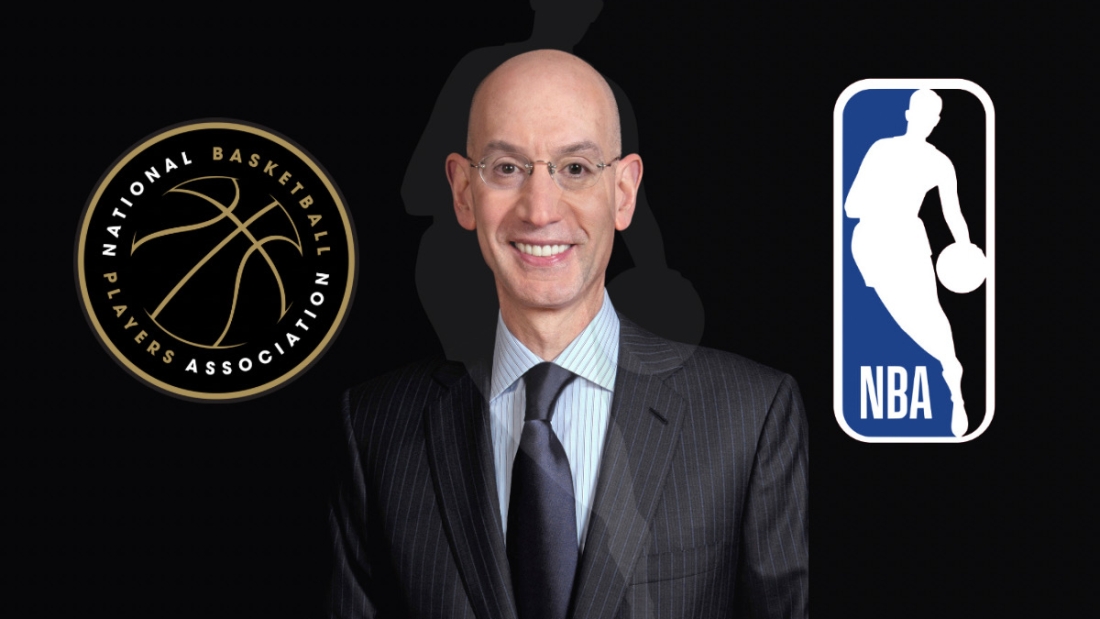Last summer, the NBA and the National Basketball Players Association locked in a new collective Bargaining Agreement. This agreement, extending through the end of the 2030 season, marks several amendments poised to shake up the league’s future dynamics.
Changes to Luxury Tax and Team Transactions
- Restrictions for High-Spending Teams: Starting in the offseason, teams whose payrolls exceed $17.5 million above the luxury tax threshold will face severe restrictions in their transaction capabilities. These restrictions include:
- Inability to aggregate contracts to trade for a single player making more money.
- Prohibition against sending out cash in trades.
- Limitations on using trade exceptions from prior years.
- Restrictions on taking back more incoming than outgoing salary in a deal.
- Impact on Future Transactions: A team that finishes the 2024-25 season over the second apron cannot trade its 2032 first-round pick. This rule aims to limit the financial flexibility of big-spending teams, affecting how they strategize their roster construction and player acquisitions.
Changes to Midlevel Exceptions and Contract Acquisitions
- Adjustments to Midlevel Exceptions: The CBA updates will see changes to the value and application of various midlevel exceptions:
- The non-taxpayer midlevel exception will increase by 9.12 percent of the cap, projected to be worth $12.4 million next season.
- The room midlevel exception will see a 30 percent increase in value to 5.678 percent of the cap, projected to be worth $7.7 million next season. This allows contracts stretching up to three seasons.
- The taxpayer midlevel will be worth $5 million next season, with a proportional increase with the cap. With this rule contracts can only last a maximum of two seasons.
- Flexibility in Using Exceptions for Trades and Waivers: Beginning with the 2024-25 cap year, teams will have the flexibility to use the non-taxpayer midlevel, the room midlevel, or the bi-annual exception to acquire players in a trade or on a waiver claim. As long as the player’s contract does not exceed the maximum length allowed by that exception. However, these exceptions cannot be aggregated.
- Changes to Traded Player Exceptions: The new CBA will allow teams to use traded player exceptions for salary matching even if they are in the tax but under the first apron. Also, there will be adjustments in the permissible salary take-back for contracts worth up to $7.5 million. This now allows teams to take back up to 200 percent plus $250,000 in wiggle room.
To sum up, the changes coming to the NBA’s CBA at the conclusion of the 2024 season are designed to address financial disparities amongst teams. This also encourages more strategic financial planning, and adjusts the mechanisms through which teams can acquire and trade players.
These updates signify a shift in the league’s financial and operational dynamics, affecting team strategies and player movements. The new CBA and its implications could present challenges for NBA teams with supermax contracts already on their rosters.
Financial Flexibility and Team Building
- Luxury Tax Implications: Teams that are significantly over the luxury tax threshold will face stricter penalties and restrictions. This could directly impact teams with one or more supermax contracts, as these large contracts substantially contribute to a team’s total payroll, potentially pushing them into higher tax brackets.
- Restricted Transactions for High-Spending Teams: Teams exceeding $17.5 million over the luxury tax threshold will face several transaction restrictions. They cannot sign players to the mid-level exception, take in more salary in a trade than they are sending out, trade first-round picks seven years out, trade cash in a deal, or sign buyout players during the season. These restrictions severely limit a team’s ability to improve or adjust their roster around supermax players.
Supermax Eligibility and Award Voting Changes
- Award Voting Criteria: The new criteria requires players to appear in at least 65 games to be eligible for awards like MVP, All-NBA, etc. It has already been highly scrutinized by players who need to meet certain accolades to qualify for supermax contracts. If key players on supermax deals are unable to meet this games-played threshold due to injury or other reasons, it will affect their potential future earnings.
- Positionless All-NBA Teams: The shift to positionless voting for the All-NBA and All-Defensive teams fits the modern NBA era. Since supermax eligibility can depend on receiving these honors, any changes in how players are selected will influence who can earn supermax contracts. This change could potentially either benefit or disadvantage players depending on the pool of talent in a given season.
The adjustments in the new CBA, particularly around financial rules for high-spending teams and award voting criteria, could make it more challenging for teams with supermax contracts to navigate the luxury tax, make strategic roster moves, and manage player eligibility for future supermax contracts. These changes aim to increase parity across the league but could require teams to make tough decisions regarding their highest-paid players and overall team strategy.



Leave A Comment